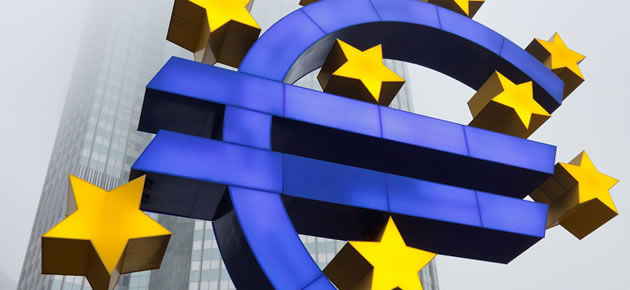The Euro to US Dollar (EUR/USD) exchange rate firmed on Monday as economic data showed that inflation fell at a slower pace in February and as unemployment across the region fell to its lowest level in 33-months.
The Euro to US Dollar (EUR/USD) exchange rate hit a session high of 1.122
The Euro advanced against the US Dollar and Pound Sterling following the release of the data, which showed that Eurozone consumer prices did not fall as quickly as expected last month, and the region’s jobless rate ticked down to a 33-month low in the first month of 2015.
According to Eurostat, the annual rate of consumer inflation across the Euro area fell by 0.3%, the figure was better than the 0.4% forecast by economists. The figure was a sharp improvement on the 0.6% decline seen in January. The report showed that the cause for the decline was primarily down to falling energy prices. Service sector prices rose by 1.1% and food, alcohol and tobacco prices increased by 0.5%.
‘Falling energy costs should be of little concern to the ECB – they are essentially beyond its control, and in any case should prove positive for the Eurozone economy as disposable incomes rise. Core CPI inflation excluding volatile items such as food and energy, remained steady at 0.6%. This is still a worryingly low level, but the fact it didn’t fall further is mildly encouraging,’ said Ben Brettell, senior economist at Hargreaves Lansdown.
Also supporting the Euro was a better than forecast unemployment report. The lowest jobless rates in the Eurozone were recorded in Germany (4.7%), Austria (4.8%). The highest level was as usual in Greece at (25.8%) and Spain with (23.4%). Unemployment rose in only three of the nineteen Eurozone members. Cyprus saw its jobless rate rise from 15.7% to 16.1%. Finland saw a rise from 8.4% to 8.8% and France’s jobless rate moved higher from 10.1% to 10.2%.
The improved data may have supported the Euro but economists are not convinced that it will change the European Central Bank’s outlook to the strength of the economy.
‘With unemployment declining and deflation easing, the latest labour and price data for the Eurozone look less awful. Nonetheless, these data provide little reason to expect the ECB to change its approach toward the risk of trend deflation in the Eurozone,’ said Bill Adams, senior international economist for PNC Financial Services Group.
The US Dollar could regain earlier losses if upcoming ISM and Markit Manufacturing PMI data comes in strongly.



